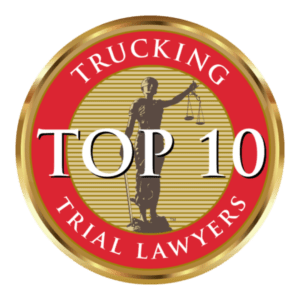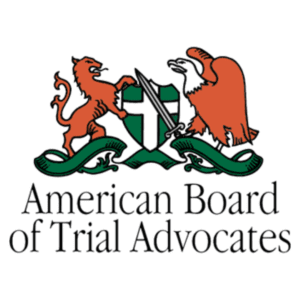Trucking accidents can cause catastrophic injuries and financial devastation for victims. Unlike standard car crashes, these cases involve complex factors such as federal regulations, commercial insurance policies, and large corporate defendants.
At Sam Aguiar Injury Lawyers, we’ve handled numerous trucking accident cases, helping victims get the compensation they deserve. In this post, we’ll break down the most common types of trucking accidents, what causes them, and what you should do if you or a loved one is injured.
Learn about all the major types of truck accidents we handle.
1. Jackknife Accidents
A jackknife accident occurs when the truck’s cab and trailer fold in on each other, forming a 90-degree angle. This often happens when a truck driver brakes too suddenly, causing the trailer to swing uncontrollably.
Common Causes:
Sudden braking or hard turns
Slippery roads from rain, snow, or ice
Speeding combined with improper weight distribution
Legal Implications:
These accidents often stem from driver negligence, lack of proper training, or mechanical failures. If the trucking company failed to maintain brakes or properly train the driver, they could be held liable.
2. Rollover Accidents
A rollover accident is one of the most dangerous types of trucking crashes, often leading to multi-vehicle pileups.
Common Causes:
Taking curves or turns too fast
Overloaded or improperly balanced cargo
Driver fatigue leading to overcorrection
Who’s Liable?
Depending on the situation, the driver, trucking company, or cargo loaders who failed to properly secure the load may be liable.
3. Underride Collisions
An underride accident happens when a smaller vehicle slides under a truck’s trailer, often resulting in devastating injuries or fatalities.
Causes Include:
Sudden stops by the truck
Lack of proper underride guards
Poor visibility and lack of reflectors at night
How These Cases Are Handled:
Federal regulations require underride guards on trucks, but not all companies comply. If a trucking company failed to install proper safety guards, they could be held fully liable for damages.
4. Cargo-Related Trucking Accidents
Improperly loaded cargo can shift suddenly, causing loss of control, rollovers, or spills that lead to multi-car crashes.
Common Cargo Issues:
Overloading beyond legal weight limits
Poorly secured materials falling onto the road
Transporting hazardous materials unsafely
Who’s Responsible?
Liability may fall on cargo loaders, trucking companies, or third-party logistics providers.
5. Rear-End Collisions
Due to their massive weight, trucks require significantly more stopping distance than passenger vehicles. When a truck rear-ends a smaller vehicle, the results can be catastrophic.
Why These Accidents Happen:
Distracted or fatigued driving
Faulty brakes or lack of maintenance
Tailgating or speeding
Legal Challenges:
If the driver was drowsy, texting, or failed to maintain safe following distance, they or their employer could be held responsible.
Our team secures critical evidence in complex rear-end truck crash claims.
What to Do If You’ve Been Injured in a Truck Accident
If you or a loved one has been involved in a trucking accident, taking the proper steps can help protect your legal rights:
Seek Medical Attention – Even if injuries seem minor, always get checked out.
Document the Scene – Take photos of the vehicles, road conditions, and visible injuries.
Get a Police Report – This will be crucial for your claim.
Avoid Speaking to Insurance Adjusters – They may try to minimize your compensation.
Contact an Experienced Trucking Accident Lawyer – These cases are complex and require a skilled legal team.
Need help? Contact Sam Aguiar Injury Lawyers today for a free consultation.
Frequently Asked Questions About Trucking Accidents
1. What is “liability” in a trucking accident?
Liability in trucking accidents depends on multiple factors. Potentially responsible parties include:
The truck driver (if they were speeding, distracted, or fatigued).
The trucking company (for failing to train drivers, improper hiring, or pushing unrealistic schedules).
The cargo loading company (if improperly loaded cargo caused the crash).
The truck manufacturer (if faulty brakes, tires, or other mechanical failures were involved).
An experienced trucking accident attorney can investigate and determine liability.
2. How is a trucking accident different from a car accident?
Trucking accidents are more complex than standard car accidents because:
Federal trucking regulations apply (e.g., hours-of-service limits for drivers).
Larger insurance policies are involved, often worth millions.
Multiple parties may share liability (driver, trucking company, manufacturer).
More severe injuries due to the massive size and weight of trucks.
Because of these factors, trucking cases require a specialized attorney with experience handling commercial vehicle claims.
3. What should I do immediately after a trucking accident?
If you’re involved in a trucking crash, take these steps to protect yourself:
Call 911 – Get emergency help and file a police report.
Seek medical attention – Even if you feel okay, some injuries appear later.
Gather evidence – Take photos of vehicles, road conditions, and injuries.
Get witness contact info – Their statements can be crucial.
Don’t talk to insurance adjusters – They may try to minimize your claim.
Consult a trucking accident lawyer – An experienced attorney can handle negotiations, investigate liability, and fight for your compensation.
4. How long do I have to file a trucking accident claim?
The statute of limitations varies by state. In Kentucky, for example, you typically have two years from the accident date to file a personal injury claim. However, certain factors (such as wrongful death or government involvement) can affect the deadline.
Act fast—waiting too long can hurt your case and limit your ability to recover damages.
5. What damages can I recover after a trucking accident?
Victims of trucking accidents may be entitled to compensation for:
Medical bills (hospital stays, surgeries, rehabilitation)
Lost wages (past and future income if you can’t work)
Pain and suffering (physical and emotional distress)
Property damage (repair or replacement of your vehicle)
Wrongful death (if a loved one was killed in a trucking accident)
An attorney will fight to maximize your settlement and ensure you’re fairly compensated.
Final Thoughts
Truck accidents are complex; victims often face massive medical bills, lost wages, and long recovery periods. Understanding the different types of trucking crashes is crucial in building a strong injury claim.
If you’ve been injured in a trucking accident, acting quickly and getting legal representation is crucial. At Sam Aguiar Injury Lawyers, we have extensive experience handling trucking cases and securing maximum compensation for our clients.
Need help? Contact us today for a free consultation.








